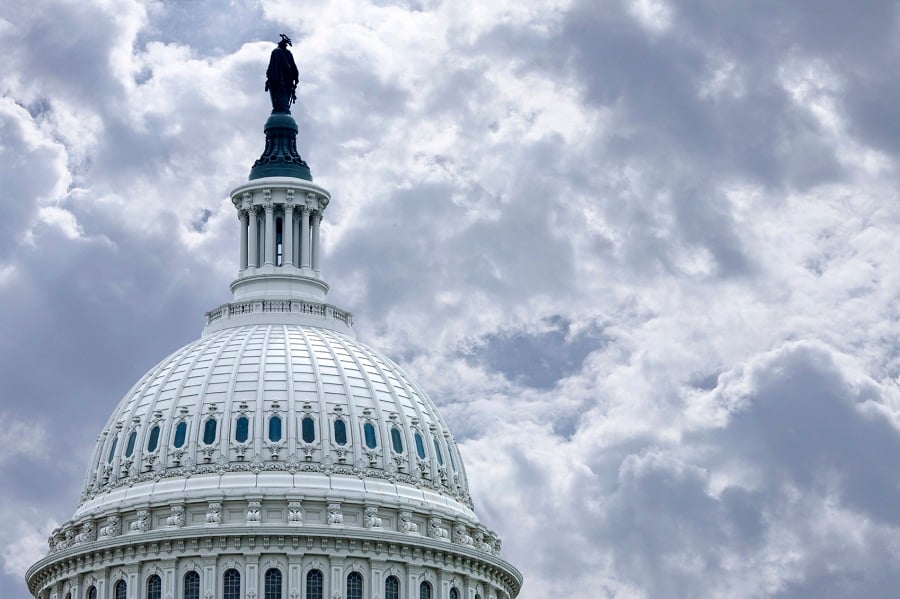

Congress likely will deliver a stocking full of policies later this week if, as expected, it approves a massive bill that will keep the government funded into next fall.
Although the $1.65 trillion, 4,154-page measure – known as an omnibus appropriations bill – primarily finances government agencies for the current fiscal year, it contains a range of other legislation that caught a ride on the last vehicle moving through Congress before the end of the year.
Lawmakers must pass the omnibus by Friday night to keep the government open, which most observers say is the likely outcome.
The big present for financial advisers and their clients was the inclusion of retirement-savings legislation known as SECURE 2.0. That part of the bill, which starts on page 2,047, incorporates 92 provisions to increase the number of Americans building nest eggs.
The bill also includes other legislation that affects advisers. For instance, the Registration for Index-Linked Annuities bill that the Senate approved earlier in December is tucked into the omnibus to ensure that it gets across the legislative finish line.
That bill would direct the Securities and Exchange Commission to promulgate a rule that streamlines regulatory filing requirements for annuities tied to indexes. A legislative priority for the insurance industry, supporters say that it would give investors better information about the products’ features and risks and would encourage insurers to issue more of them.
The omnibus also includes language that encourages the Treasury Department to complete its work on rules that would establish anti-money laundering requirements for investment advisers. It also prods the SEC to strengthen disclosures around special purpose acquisition companies, which are shell firms that catalyze the transition of private companies to the public market that have posed investor protection concerns.
You see that I’m using “also” a lot in this column. With this bill, there’s always one more thing beyond funding itself. The SEC gets a $210 million bump to a budget of $2.2 billion, a good chunk of which SEC Chairman Gary Gensler likely will use to beef up enforcement. In addition to money, the agency receives a whole lot of other guidance.
As we head toward the end of the year, Congress is once again using an omnibus appropriations measure to complete the work on the federal budget that it couldn’t do through individual appropriations bills. It’s also hanging on that Christmas tree a multitude of other policy ornaments. For instance, it includes the Electoral Count Act, a measure that clarifies how Congress must ratify the results of presidential elections. It is meant to prevent a future attempt to overturn the vote similar to the Jan. 6, 2021, riot at the Capitol.
Some argue that this is not the best way to make public policy – stuffing a bunch of bills into a larger one to create a legislative turducken just before Congress goes home for the holidays. But it’s the best that can be done at the moment on a Capitol Hill where the parties almost evenly split power.
“It is an unfortunate byproduct of the current broken nature of Congress,” Jason Rosenstock, a partner at the government relations consulting firm Thorn Run Partners, wrote in an email.
Rosenstock, who put together his own rundown of legislation incorporated in the omnibus, pointed out that some of the extras in the bill, such as RILA, did go through some parts of the legislative process. They just couldn’t be enacted without being attached to the omnibus.
“It clearly isn’t the way we learned about how Congress works in elementary school,” Rosenstock said. “But it is the best way given the current structural issues impacting Congress.”
Indeed, much of what was stuffed into the bill was not a surprise because it had appeared somewhere in the House and/or Senate this year. For instance, the House approved a version of SECURE 2.0 in March, and Senate committees passed their own versions over the summer.
“Most of the elements of [SECURE 2.0] have been through the regular order process,” said Paul Richman, chief government and political affairs officer at the Insured Retirement Institute. “Each of these pieces could have passed separately, but they ran out of time.”
It’s likely Congress will rush to beat the clock in future sessions. But perhaps each time, it will get more work done earlier in the game.

Relationships are key to our business but advisors are often slow to engage in specific activities designed to foster them.

Whichever path you go down, act now while you're still in control.

Pro-bitcoin professionals, however, say the cryptocurrency has ushered in change.

“LPL has evolved significantly over the last decade and still wants to scale up,” says one industry executive.

Survey findings from the Nationwide Retirement Institute offers pearls of planning wisdom from 60- to 65-year-olds, as well as insights into concerns.
Streamline your outreach with Aidentified's AI-driven solutions
This season’s market volatility: Positioning for rate relief, income growth and the AI rebound
